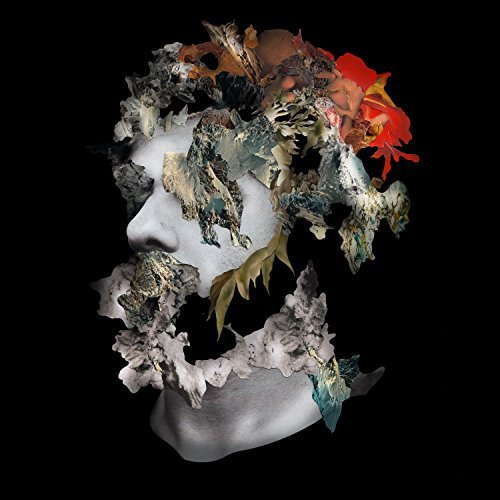
Ash Koosha
I AKA I
Release Date: Apr 15, 2016
Genre(s): Electronic
Record label: Ninja Tune
Music Critic Score
How the Music Critic Score works
Buy I AKA I from Amazon
Album Review: I AKA I by Ash Koosha
Excellent, Based on 8 Critics
Based on rating 9/10
While most of us are limited to merely hearing sounds, recent Ninja Tune signee Ash Koosha has no such restrictions; as a man gifted with synaesthesia, he has the ability to see sound in terms of shape and colour. As you might imagine, this allows for the crafting of music that's largely unlike anything else around.I AKA I is an album that seems more likely to have been forged in the crucible of the universe than in one man's bedroom. Its elements fuse and bubble into existence before evolving into their own mini-worlds.
Based on rating 4
It feels important to note, approaching the new Ash Koosha album I AKA I, that Ashkan Kooshanejad grew up listening to a lot of radically diverse music without being aware of how any of it was classified. “You’d listen to a lot of stuff without knowing what was behind it [growing up in Iran],” Kooshanejad explained to Pitchfork earlier this year, “so it was all aesthetics like musicality. I was just interested in sound and different forms of music.
Based on rating 8/10
Following the critical success of his 2015 debut GUUD, Iranian sonic experimenter Ash Koosha moved to Ninja Tune for the release of 2016 follow-up I AKA I. A software designer who works with virtual reality, Koosha claims the ability to see sound (referred to as "synaesthesia"), and he treats soundwaves as physical matter which can be manipulated. Judging by his music, he must be able to see shapes and formations that simply don't exist in the natural world.
Based on rating 8/10
Ashkan Kooshanejad, who operates under the alias Ash Koosha, hasn’t exactly had the easiest introduction into the music industry. The electronic artist who hails from Iran found his start bombarded by the obstacles of strict censorship laws. Koosha has served time in jail for playing an unsanctioned concert, and from there the government only became stricter.
Based on rating 8/10
The latest press photo from the Iran-born, London-based producer Ash Koosha depicts his face as a fractured visage, bursting from its center in broken shards. It’s as if you’re looking at the producer (real name: Ashkan Kooshanejad) through a shattered lens—and it’s a apt metaphor for the life the that he’s led, for his perspective on music, and for his resulting productions. Escaping artist repression (including a short stint in prison) in his home country and finding asylum in London, his creative years have effectively been split in two; he’s also endowed with synesthesia (he's said that he can “see” sound), leading him to think of music as jagged entities, ripe for analysis and manipulation.
Based on rating 7.5/10
Tehran-via-London artist Ashkan Kooshanejad offers up harsh, detailed compositions that would be difficult, if not impossible, to achieve using physical synthesizers and samplers. Kooshanejad in particular stands out amongst peers like Arca and Actress because he's not framing his work as a deconstruction of dance music, nor does his knowledge of Persian classical music figure heavily in his work. The digital world, and the software that engenders it—the way it allow users to re-scale, re-orient, and and re-produce sound—is the only apparent framework for Kooshanejad's work.
Based on rating 3.7/5
I AKA I, Ashkan Kooshanejad's second album as Ash Koosha, continues down the route he embarked on with his debut, last year's GUUD, namely by dealing in dualities. While studying in Tehran, Kooshanejad developed an understanding of classical composition, which he transposed to the more abstract computer music he was making. At the same time, his experience with contemporary Western styles was scattershot.
Opinion: Excellent
With the sort of freneticism and energy that is becoming customary in modern electronic music (think Arca, Brood Ma, or Oneohtrix Point Never's latest mish-mashing of styles), Iranian-born, London-based producer Ash Koosha rips his way through all notions of genre, identity and idiom on I AKA I; an exploration of music traditions twisted inside out through technology. Taking inspiration both from his homeland, which he had to leave as an asylum seeker after spending time in jail, and the modern Gotham of the UK's capital, Koosha has synthesised a wealth of sounds into a new form of electronica that defies easy categorisation. The idea of East meeting West in music has long animated the minds of musicians and composers, from the Paul Butterfield Blues Band and their album of the same name to Fatima Al Qadiri's "sinogrime" album Asiatisch, but Koosha takes a novel approach in dissolving both archetypes into one another, avoiding the potential pitfall of focusing solely on a mannered interpretation of a particular form of exoticism.
'I AKA I'
is available now

